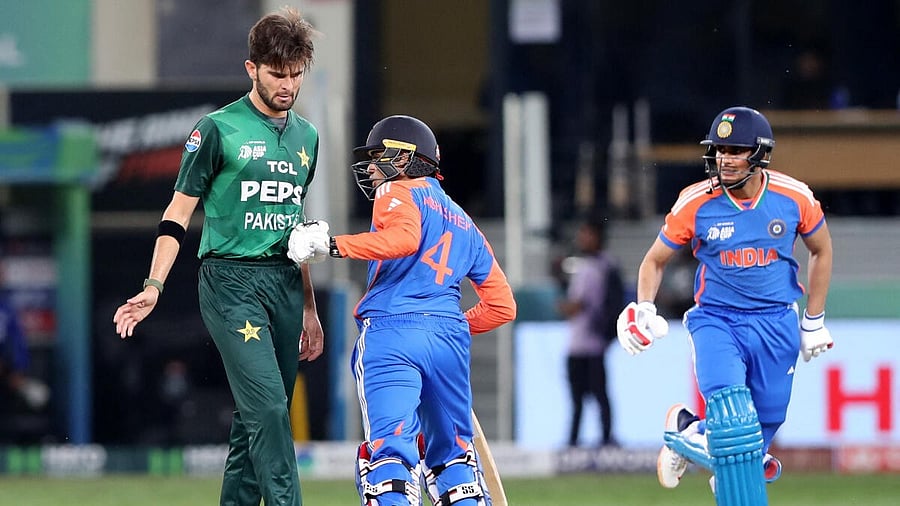
Close contests between India and Pakistan have been too few and far between.
Credit: Reuters Photo
Dubai: Rivalry – A situation in which people, businesses, etc compete with each other for the same thing.
That’s the Cambridge Dictionary definition, suggesting that a rivalry is a competition among equals, a fierce contest for the same prize.
Those in the upper echelons have been saying it in whispers, many have been screaming from the rooftops that the social media space is, but the primary stakeholders have been skirting the issue. Until now, that is.
Suryakumar Yadav, India’s Twenty20 International captain, has ripped the veil off the pretence during the ongoing Asia Cup, lending legitimacy to the widely held conviction that India vs Pakistan is no longer a rivalry for the ages. As rivalries go, it’s a has-been; it’s what used to be, not what is.
Consider the most basic of facts. Since the T20 World Cup showdown in Melbourne in October 2022, India hold a perfect 7-0 record against their neighbours in limited-overs internationals – four convincing wins in T20s, three commanding triumphs in 50-over showdowns. India are the reigning T20 World Cup champions and No. 1 in the format, they made it to the final of the 50-over World Cup at home in 2023 and are the top dogs in ODIs too, and are the holders of the Champions Trophy.
In the last three ICC white-ball events, they have lost one match, going through two title runs with an all-win record.
Pakistan didn’t advance to the knockouts of any of these three tournaments; they are ranked fifth in ODIs, two places lower in 20-over cricket. They have gone through captains and coaches faster than movie stars do clothes in a song sequence.
They are a jalopy in the high-octane stratum of Formula One cars, spectacularly failing to match bravado and bluster with on-field performances.
Rivalries often have a seminal moment. As far as India and Pakistan are concerned, that came off the last ball of the final of the Austral-Asia Cup in April 1986 in Sharjah, when Javed Miandad slammed Chetan Sharma for the most talked about six in the history of the game. India had won eight of 16 preceding ODIs, but for 16 years after the Miandad maximum, Pakistan were the unquestioned bosses, victorious in 44 of 68 head-to-heads (21 losses).
The balance of power has inexorably changed thereafter. From the 2003 World Cup onwards, India lead the ODI faceoffs 29-21, but if one takes 7 January 2013 as the reference point – strange date, yes, but the last bilateral international between the sides was on January 6 that year – it has been emphatic one-way traffic.
India have comprehensively been the superior, more dominant side, exemplified by records of 9-2 in 12 ODIs and 8-2 in 10 T20Is. Pakistani victories have assumed the hue of an upset, Indian wins predictable. Close contests have been too few and far between, the gulf in quality, smarts, commonsense, emotional equilibrium and game awareness gaping and unbridgeable in the immediate future.
Why is that so? Because Pakistan aren’t throwing up the class of batters they once used to, but also because they have buried their heads in the sand, allowing the rest of the world to storm by while stubbornly sticking to the tried, tested and unsuccessful.
India, themselves slow to change, have adapted to the demands of the modern game superbly, no doubt feeding off the global stage that the Indian Premier League is. The Indian system is robust, vibrant, structured, unlinked to the chaos that permeates the system across the border.
Hence the wide chasm that has driven past Pakistani masters like Wasim Akram and Waqar Younis, among others, to the throes of frustration, if not anger.
Suryakumar needs a pat for holding up a mirror to the truth. The once-storied rivalry doesn’t exist. Perhaps, it never will again.